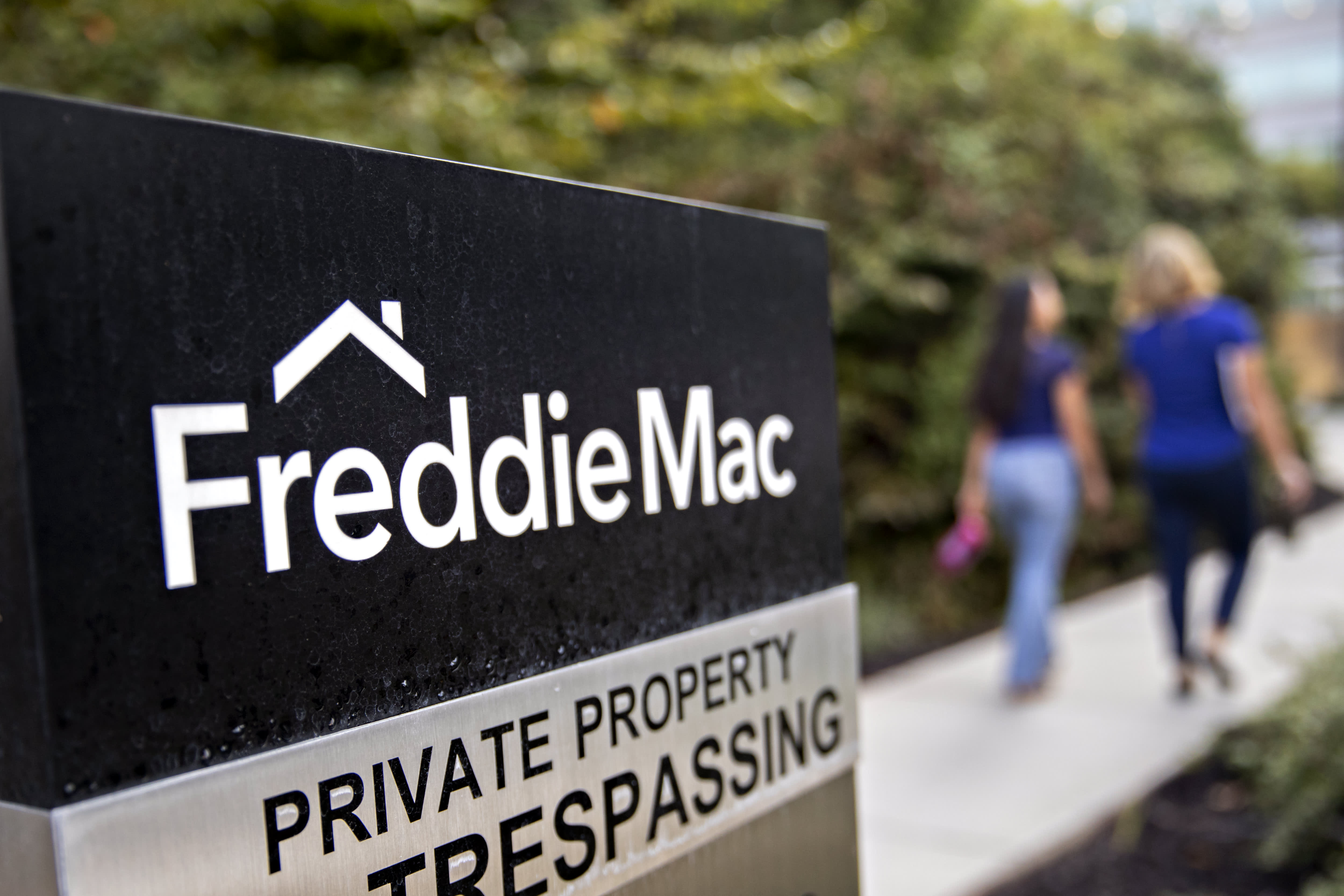Products You May Like
Loan servicers are being slammed by requests from homeowners to delay their monthly mortgage payments as the coronavirus forces millions of people out of work. Yet one of the industry’s top regulators vehemently denies that those servicers need any help.
Top industry leaders are fighting back in an escalating war of words that could have a wide-ranging impact on the nation’s housing market.
Last week, Mark Calabria, director of the Federal Housing Finance Agency, which oversees Fannie Mae and Freddie Mac, said in an interview on CNBC that a liquidity facility for servicers might be necessary after a few months – but not now.
The CARES Act, which President Donald Trump signed March 27, seeks to limit the economic damage from COVID-19. It includes a mandate that all borrowers with government-backed mortgages — about 62% of all first lien mortgages according to the Urban Institute — be allowed to delay at least 90 days of monthly payments and up to a year’s worth.
Mortgage servicers, who collect borrowers’ monthly payments, are still required to pay the bondholders on those loans, whether borrowers pay or not. Calabria estimated there could possibly be 2 million borrowers missing payments by the end of May. But forbearance requests have already topped 2 million, according to a report released Tuesday by the Mortgage Bankers Association. Servicers say they desperately need help to make those payments.
Calabria is now saying servicers won’t need help for at least a year. He told The Wall Street Journal on Tuesday that he has seen no evidence to suggest that there’s a systemic crisis for nonbank servicers. He called the industry’s concern “spin.”
The Mortgage Bankers Association immediately took issue with Calabria’s comments.
“The FHFA director’s recent statements send a troubling message to borrowers, lenders, and the mortgage market,” Bob Broeksmit, president and CEO of the group, said in a statement late Tuesday night. “Since Fannie Mae and Freddie Mac will eventually reimburse mortgage servicers for the payments they must advance during forbearance, Director Calabria should advocate for the creation of a liquidity facility at the Fed to ensure the stability of the housing finance market.”
A liquidity facility would have to be set up by the Federal Reserve and be backed by the U.S. Treasury, not the Fannie and Freddie. Neither the Fed nor the Treasury needs Calabria’s permission to do that. Calabria, however, is the most powerful voice in the matter and is a voting member of the Financial Stability Oversight Council. He may have sizable influence on any decision by the Fed and Treasury.
In a surprising twist, Calabria suggested Fannie and Freddie could just transfer servicing rights from struggling servicers and give those rights to other entities – either larger non-bank servicers or the banks themselves. Nonbank lenders and servicers took over much of the mortgage market following the subprime crisis, when banks backed away from mortgage lending.
“We believe at this point, given the number on uptake of forbearance, we’ve seen that we can transfer servicing in a way that’s not too disruptive,” Calabria said in an interview with HousingWire on Tuesday.
Broeksmit disagrees: “Millions of Americans are well-served by their local independent mortgage bank, community bank, or credit union, and many chose to obtain their mortgage from those institutions for that precise reason.”
Ginnie Mae, which is Fannie and Freddie’s counterpart for FHA and Veterans Administration loans, just announced it was opening a liquidity facility for servicers of its loans.
“Owning and servicing [mortgage servicing rights] is a capital-intensive proposition, and the more avenues that exist for private capital to flow into the system on attractive terms, the easier it becomes to fulfill our mission of bringing global capital into the U.S. housing market, while minimizing risk to the taxpayer,” said Ginnie Mae Principal Executive Vice President Seth Appleton in a release.
Calabria defended his stance, pointing to the MBA’s latest numbers, which show just under 2% of borrowers with Fannie and Freddie loans were in forbearance through April 1. Industry experts and economists, however, estimate that share will go much higher. Some say as high as 25% of Fannie and Freddie loans.
In a base case scenario calculated by Urban Institute, 12% of borrowers would be in forbearance for six months at a cost to servicers of $33 billion. Its worse-case scenario doubles those numbers. The majority of mortgage servicers are nonbanks, meaning they do not have near the cash reserves that the big banks do.
Calabria also told HousingWire that Fannie and Freddie may have to move mortgage servicing to bigger companies if smaller servicers don’t have the cash to handle all the forbearances.
Industry observers were concerned by his comments.
“We see this interview as counterproductive to efforts to stabilize the economy and housing finance,” wrote Jaret Seiberg, financial services and housing policy analyst for Cowen Washington Research Group. “It is only going to increase concerns about the stability of servicers and reduce the willingness of lenders to originate mortgages, including refinancings. We do not see how that is in the public’s best interest.”
